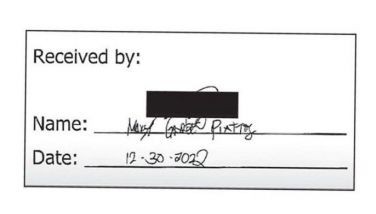Fil-Ams in demand in America
December 11, 2005 | 12:00am
WASHINGTON — Teachers and nurses from the Philippines are worth their weight in gold in the United States — both literally and figuratively — if what they contribute to both countries is anything to go by.
They are among the most sought-after foreign workers across America because of their skills and mastery of the English language and they are becoming the engine of growth in the Philippine economy.
The labor office at the Philippine embassy in Washington does not know how many Filipino workers are in the United States but should you need to go to a hospital, chances are a Filipino doctor or nurse will attend to you.
One recruiting agency has tripled the number of Filipino teachers it has recruited for jobs in one county alone in Maryland from 30 in 2004 to 80 this year.
And there are no signs anytime soon of demand for foreign health and medical workers and teachers slackening because of a perennial shortage in the US.
The conservative think-tank Heritage Foundation said H1-B visas granted for education occupations increased from 5.3 percent in 2001 to 10.5 percent in 2003, while visas for health and medical workers rose from 3.4 percent to 7.2 percent. But it gave no actual numbers or breakdown of nationalities recruited.
Heritage said the lack of qualified public school teachers especially in hard-to-fill areas of math and science have been reported this year across the nation — from Alabama to Nevada and from Texas to Utah.
The flight of doctors, nurses, teachers and other professionals from the Philippines, while socially debilitating, is economically beneficial — their remittances are expected to reach a record $10 billion to $12 billion this year, about half of it from the US.
This sum is only what passes through official channels. Add the countless "padala" (hand-carried envelopes stuffed with money) and total remittances double, said Ambassador to Washington Albert del Rosario.
Philippine government officials acknowledge the inflow of remittances from overseas Filipino workers exceed foreign investments and keeps the economy afloat.
But sociologists are concerned about the long-term implications of the brain drain and lament the country may eventually be left only with mediocre people as the best and the brightest continue to leave in droves for better-paying jobs abroad.
Jun Ballano, 32, a new secondary school teacher who arrived in the Washington metropolitan area a couple of months ago, said he was drawn to Maryland by an annual salary of $39,000 — ten times what he was making at Miriam College in Quezon City.
Ballano said he is able to send at least $1,000 every month to his family and he expects in about nine months to clear all his debts associated with coming over.
New teachers interviewed by The STAR said it costs a fortune — up to $10,000 in some cases — to relocate to the US to pay for visas, lawyers fees, processing fees, tests, exams, credential evaluations, placement fees and housing startup costs.
Many of them are recruited to work in schools with safety and discipline problems. Though they complain about the behavior of their charges they do not seem unduly concerned about their security or safety.
Shalimar Bose, 28, a kindergarten teacher for handicapped students with multiple disabilities, said US pay scales are seductive and though the cold weather, loneliness and cultural isolation sometimes overwhelms her, come payday every two weeks all is forgotten.
The day after payday, most of the Filipinos line up at the nearest Western Union office to send remittances to relatives and loved ones home.
"We call it Western Union Day," said Bosh who taught at the Mahatma Gandhi Elementary School in Paranaque before coming over.
Bose earns the same as Ballano, but Eulalia Bentillo, 54, who previously taught at the University of the Philippines and has a doctorate in education, earns about $80,000 per annum.
Bentillo teaches high school physics and math and her main complaint is that her students talk back, are disruptive and don’t follow orders quickly.
"Ay naku, ang hirap (Gosh, it’s difficult)," she said.
But like Ballano and Bose, she thinks the good salary more than makes up for the difficulties she has to face.
All three were among 80 teachers recruited this year by Arrowhead Manpower Resources Inc, a private employment agency in Libis, Quezon City to teach in Prince Georges County, Maryland, which has an unusually high crime rate.
About 50 of them live in one complex.
"At least we have a very good support system. At the end of the day I know I have friends to go back to. We share the same Filipino food and watch a Tagalog TV channel. So, all in all it’s not too bad," said Bose.
Good salaries and modern school equipment more than make up for shortcomings teachers encounter and many said they planned to extend their work contracts as long as possible.
Ballano said his batch of recruits came in with H-1B visas which allow highly skilled foreign workers such as computer specialists, health care workers and teachers to work in the United States for a fixed period, usually three to six years.
The US Congress increased the H-1B visa cap in fiscal year 1999 from 65,000 to 195,000 at the height of the computer boom here but scaled it back to 65,000 in fiscal year 2003 when the computer bubble burst.
To help make up for the shortfall of nurses and teachers, health and education officials have urged Congress to increase the H-1B cap back up to 195,000 and boost the availability of other visas such as employment-based EB-3 immigrant visas and J1 visas for professionals.
They are among the most sought-after foreign workers across America because of their skills and mastery of the English language and they are becoming the engine of growth in the Philippine economy.
The labor office at the Philippine embassy in Washington does not know how many Filipino workers are in the United States but should you need to go to a hospital, chances are a Filipino doctor or nurse will attend to you.
One recruiting agency has tripled the number of Filipino teachers it has recruited for jobs in one county alone in Maryland from 30 in 2004 to 80 this year.
And there are no signs anytime soon of demand for foreign health and medical workers and teachers slackening because of a perennial shortage in the US.
The conservative think-tank Heritage Foundation said H1-B visas granted for education occupations increased from 5.3 percent in 2001 to 10.5 percent in 2003, while visas for health and medical workers rose from 3.4 percent to 7.2 percent. But it gave no actual numbers or breakdown of nationalities recruited.
Heritage said the lack of qualified public school teachers especially in hard-to-fill areas of math and science have been reported this year across the nation — from Alabama to Nevada and from Texas to Utah.
The flight of doctors, nurses, teachers and other professionals from the Philippines, while socially debilitating, is economically beneficial — their remittances are expected to reach a record $10 billion to $12 billion this year, about half of it from the US.
This sum is only what passes through official channels. Add the countless "padala" (hand-carried envelopes stuffed with money) and total remittances double, said Ambassador to Washington Albert del Rosario.
Philippine government officials acknowledge the inflow of remittances from overseas Filipino workers exceed foreign investments and keeps the economy afloat.
But sociologists are concerned about the long-term implications of the brain drain and lament the country may eventually be left only with mediocre people as the best and the brightest continue to leave in droves for better-paying jobs abroad.
Jun Ballano, 32, a new secondary school teacher who arrived in the Washington metropolitan area a couple of months ago, said he was drawn to Maryland by an annual salary of $39,000 — ten times what he was making at Miriam College in Quezon City.
Ballano said he is able to send at least $1,000 every month to his family and he expects in about nine months to clear all his debts associated with coming over.
New teachers interviewed by The STAR said it costs a fortune — up to $10,000 in some cases — to relocate to the US to pay for visas, lawyers fees, processing fees, tests, exams, credential evaluations, placement fees and housing startup costs.
Many of them are recruited to work in schools with safety and discipline problems. Though they complain about the behavior of their charges they do not seem unduly concerned about their security or safety.
Shalimar Bose, 28, a kindergarten teacher for handicapped students with multiple disabilities, said US pay scales are seductive and though the cold weather, loneliness and cultural isolation sometimes overwhelms her, come payday every two weeks all is forgotten.
The day after payday, most of the Filipinos line up at the nearest Western Union office to send remittances to relatives and loved ones home.
"We call it Western Union Day," said Bosh who taught at the Mahatma Gandhi Elementary School in Paranaque before coming over.
Bose earns the same as Ballano, but Eulalia Bentillo, 54, who previously taught at the University of the Philippines and has a doctorate in education, earns about $80,000 per annum.
Bentillo teaches high school physics and math and her main complaint is that her students talk back, are disruptive and don’t follow orders quickly.
"Ay naku, ang hirap (Gosh, it’s difficult)," she said.
But like Ballano and Bose, she thinks the good salary more than makes up for the difficulties she has to face.
All three were among 80 teachers recruited this year by Arrowhead Manpower Resources Inc, a private employment agency in Libis, Quezon City to teach in Prince Georges County, Maryland, which has an unusually high crime rate.
About 50 of them live in one complex.
"At least we have a very good support system. At the end of the day I know I have friends to go back to. We share the same Filipino food and watch a Tagalog TV channel. So, all in all it’s not too bad," said Bose.
Good salaries and modern school equipment more than make up for shortcomings teachers encounter and many said they planned to extend their work contracts as long as possible.
Ballano said his batch of recruits came in with H-1B visas which allow highly skilled foreign workers such as computer specialists, health care workers and teachers to work in the United States for a fixed period, usually three to six years.
The US Congress increased the H-1B visa cap in fiscal year 1999 from 65,000 to 195,000 at the height of the computer boom here but scaled it back to 65,000 in fiscal year 2003 when the computer bubble burst.
To help make up for the shortfall of nurses and teachers, health and education officials have urged Congress to increase the H-1B cap back up to 195,000 and boost the availability of other visas such as employment-based EB-3 immigrant visas and J1 visas for professionals.
BrandSpace Articles
<
>
- Latest
- Trending
Trending
Latest
Trending
Latest
Recommended





























